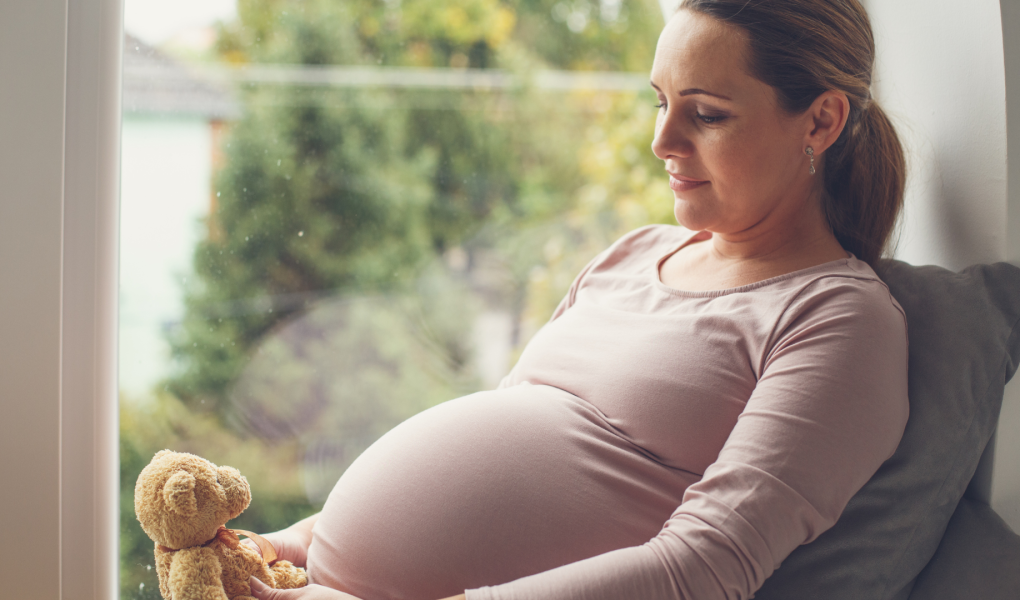Being pregnant in your 40s isn’t as uncommon as you might think. In fact, it’s actually quite common-and it can pose its own set of unique challenges. The benefits of having a child later in life include the chance to plan for your pregnancy, making sure you’re emotionally prepared for motherhood, and maximizing your chances of having a healthy, successful pregnancy.
While it may seem like your body isn’t quite ready for pregnancy, your body is ready. As long as you get all of the proper testing and screenings, your chances of developing problems during pregnancy are very low. However, if you are over the age of 40, getting pregnant later in life may be more difficult, so you will need to follow a few more steps. You can start by gathering all of the proper information and talking to your physician.
Women over the age of 40 may start experiencing menopause. While getting pregnant during menopause is rare, it is not impossible. This can be a more rocky journey, as your body is not likely to produce the usual amount of hormones, the uterus becomes smaller with age, and the endometrium wall will be thinner. However, with the right medical care, the risks can be mitigated to an extent. There are also options like hormone therapy in Knoxville, TN (or elsewhere) that can mimic the body’s natural hormonal cycles.
With all of these medical advancements, pregnancy in your 40s is no longer a rarity or a cause for concern. Many women in their late 30’s, and even early ’40s, are pregnant. It is reassuring to know that once a woman reaches the age of 40, she can become pregnant every month of the year, through every season and situation.
Getting pregnant in your 40s isn’t impossible, but it definitely requires some planning. Over 40, you may be facing a lot of the same fears you did in your 20s and 30s, like not having enough money to raise a child, so being pregnant in your 40s might make you feel a little hopeless. However, you can take steps to increase your chances of getting pregnant in your 40s.
Is there any chance that women can have a healthy pregnancy in their 40s?
With more and more women entering middle age, more women become mothers later in life. Most women reach the age of 40 or later before getting pregnant. Usually, this is a good thing, with women getting to experience pregnancy later and giving them more time to prepare mentally and physically. However, some women worry that health issues will hamper their ability to conceive, give birth and successfully raise a child. Luckily, many older women have healthy pregnancies.
If you’re expecting, when to start trying for a child may be on your mind. While there’s no hard-and-fast rule for when you should start trying for children, researchers believe 40 is the new 30 when it comes to your fertility. A study shows that after age 30, women’s chances of conceiving naturally start to decline at a rate of about 3% each year. This rate may be even higher for older women, so many doctors recommend waiting to have children until your 40s. However, this may not be possible for everyone. If you are concerned about your ability to conceive or if you’d like to have kids before you are 40, you may want to explore other options.
What are the disadvantages of pregnancy during the 40s
When a woman is pregnant, there are a bunch of things that can go wrong. She can have gestational diabetes or high blood pressure, both of which can cause harm to her unborn baby. She can get preeclampsia or eclampsia, both of which can cause severe complications for both her and her baby. She can even have a miscarriage.
The age of the mother is one of the factors in determining the risks during pregnancy. But there is no age at which pregnancy is completely safe. Women who have babies after the age of 40 have a higher chance of having a preterm or low birth weight baby. However, women in their 40s are no more likely to die in childbirth than women in their 30s.
One thing women in their 40s may notice after pregnancy is sagging breasts. When we’re young, our skin is full of collagen, making it more elastic and allowing it to bounce back after being stretched. A mother in her 40s, however, is at a disadvantage. With less collagen, breasts are less likely to regain their pre-pregnancy shape and volume. After breastfeeding is finished, however, it’s possible to get breast augmentation in Denver, CO (or elsewhere) to help reduce sagging and restore fullness.
Pregnancy can leave behind excess skin, stubborn pockets of fat, and deflated breasts. These physical changes, along with the toll of juggling motherhood, career, and self-care, can make some women feel self-conscious about their postpartum bodies. There are concerns like sagging breasts, loose abdominal skin, and stubborn fat pockets which can be addressed through procedures like breast augmentation, tummy tucks, and liposuction. The goal is to restore contours and leave mothers feeling rejuvenated. When paired with a healthy lifestyle, procedures similar to mommy makeover in Beverly Hills, CA (or wherever you are based) can also help women regain confidence and enjoy this next stage of life.
Another thing that pregnant women can experience is the development of spider veins. This can happen due to the combination of hormonal changes, increased pressure on blood vessels, and the effects of pregnancy on the circulatory system. While this condition may not be harmful, it can cause a woman to feel insecure of conscious of her complexion and can be treated with the help of spider vein treatment at a medical spa near them.
Pregnancy during the 40s poses some unique issues for both mother and baby. Although certain health issues are common, there are also some specific risks for those in their 40s. Women in their 40s may experience pregnancy complications due to various reasons. Some complications occur due to old age, while other complications are a result of an unhealthy lifestyle.
The 40s is a difficult decade for pregnancy because our bodies change so much: we lose weight, and hormones change as we age. You need to be aware of some pregnancy problems before you get pregnant, though, and some of them are scary.




